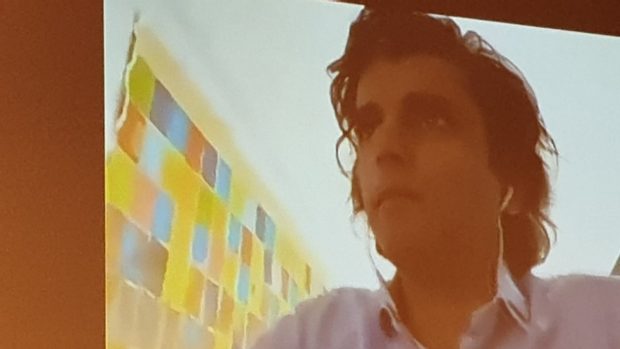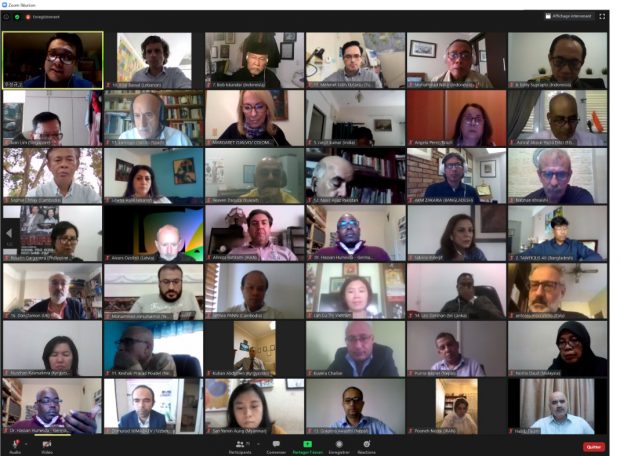The option of peace must always precede the option of war

Bilal Bassal addressing WJC 2020 (Picture by Sang-ki Lee)
By Bilal Bassal
Artist, journalist
Beirut: Growing up in Lebanon and watching news coverage across the world on television, I have come to the deep belief that the option of peace must always precede the option of war.
I stressed this conclusion as I addressed the World Journalists Conference (WJC) 2020 held in Seoul, the capital of a country that has itself known a savage war that sliced the Korean Peninsula into South Korea and North Korea.
To mark the 70th anniversary of the Korean War, the Journalists Association of Korea (JAK) featuredPeace Policy in the Korean Peninsula as one of the three themes addressed by local experts and international journalists in the three-day conference.
Fake news and the future of journalism and global responses to COVID-19 were the other two themes.
This is my speech delivered online at the conference:
“You have heard a lot about Lebanon these days, but unfortunately, it was mainly sad and terrible news. My country has long been known as a paradise on earth, blessed with great nature, rich cultures and an open society. Unfortunately, we have a different situation.
When I read about the Korean War and how it was started 70 years ago, my thoughts took me directly to the Lebanese Civil War. There are many similarities between the sad events in both countries. The biggest losers in a war are the people, and to me, human lives are much more important than political gains. From this humane point of view, I decided to make a comparison between the Korean and the Lebanese wars.
The war on the peninsula has devastated Korea and split it into two parts, North and South Korea. The Lebanese War did not split the country geographically but divided its people into different sectarian and social groups. In the two wars, there were many common points. For example, the strange situation where the people of the same country killed one another.
So, to be able to avoid a new war in Korea, Lebanon, or other countries, we have to learn from the past and hope for the future. It might be even possible to witness the rebirth of the united Korean Peninsula, to cancel the Korean Demilitarized Zone (DMZ), and let the people of both Korean sides meet and be with each other, one people in one country.
What kind of lessons do we have to learn from the past? A simple answer is that wars never were a good solution for the people. In both Korea and Lebanon, millions of civilians and military personnel have died, most of whom were common citizens. Yet, at the same time, millions of people are still alive, remembering, and suffering psychologically, through their own personal experience, or through the stories of their parents, relatives, neighbors, and friends.

A section of the participants (Picture by Bilal Bassal)
As a journalist and artist, and looking at the 70th anniversary of the Korean War and the centenary of the founding of Lebanon, I strongly believe that it is a duty to remind the people, mainly politicians in both countries, of the significance of peace and to stress the tragedies caused by wars. The aim is to help ensure there will be no more wars in the future
This can be done through conferences, documentaries, exhibitions, and cultural events that highlight that the option of peace must always precede the option of war.”




















































